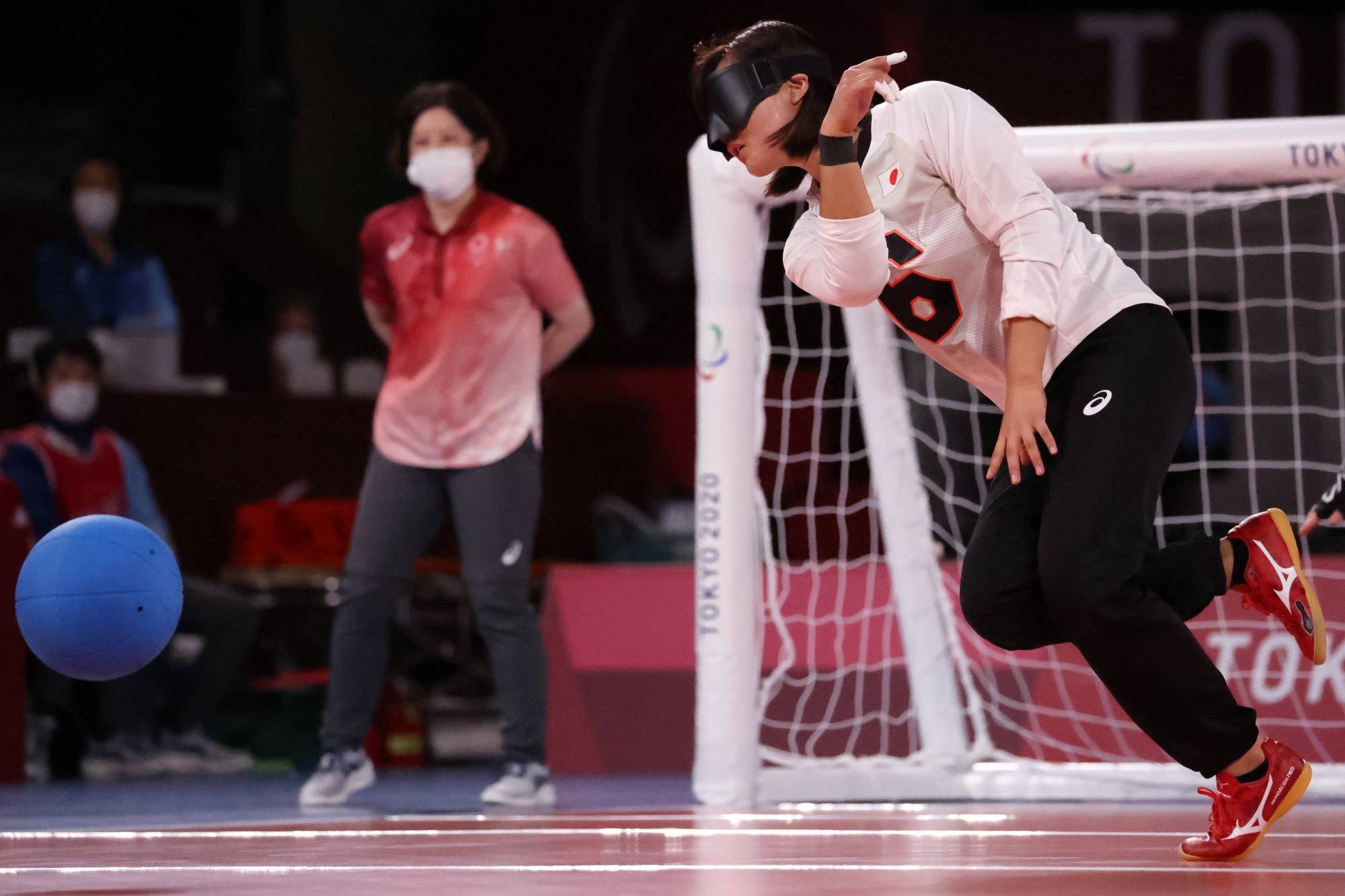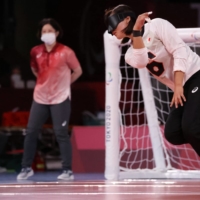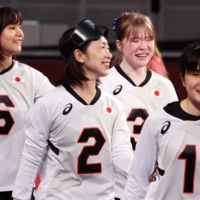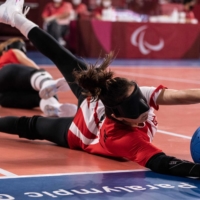The Japan women's goalball team left Makuhari Messe on Friday with bronze medals around their necks and the hope that the noise they made in the Paralympics' silent sport will reverberate across Japan.
The Japanese women claimed their first medal in the sport since 2012 with a 6-1 victory over Brazil in the bronze medal game.
"I thought that we would get a lot of attention if we won a medal at the Paralympics," Yuki Temma said. "I think winning the bronze medal is a chance to raise interest in goalball. I would be really happy if the number of people who wanted to watch goalball increased."
The Japanese women only lost twice during the Paralympics, with both defeats coming against the eventual champion, Turkey.
Japan improved on its fifth-place showing at the Rio Games and members of the team are hopeful claiming bronze helps build momentum for the sport with the Paris Games just three years away.
"Goalball is not yet a major competition," Norika Hagiwara said. "So I hope a lot of people learned about it through this tournament and will support us."
Goalball is one of two Paralympic sports without an Olympic equivalent — boccia is the other — and is likely not a competition many are familiar with. It's played by visually impaired athletes on a volleyball-sized court. There are three players on each side and the objective is to get the ball into the opposing team's net.
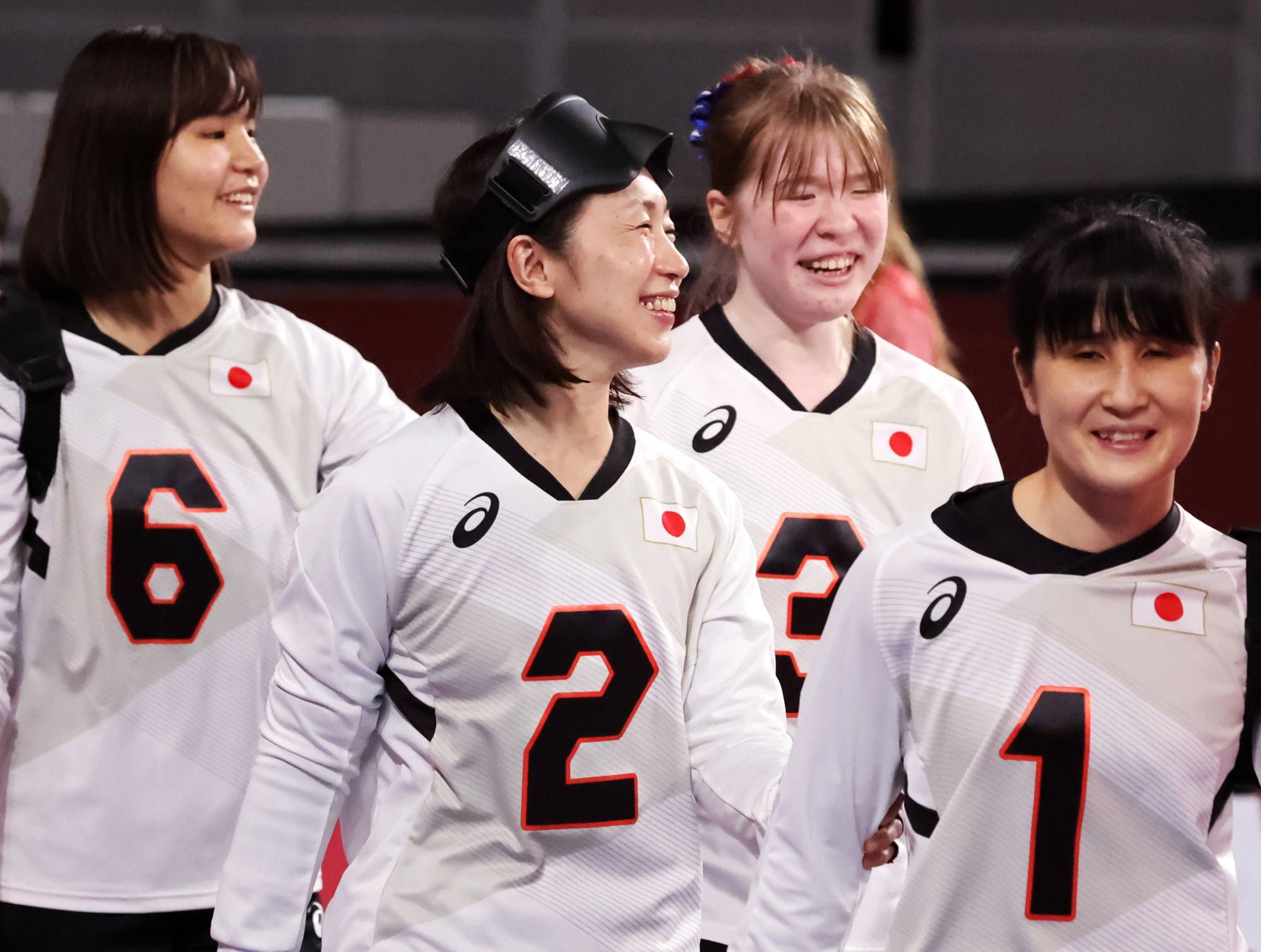
It's played in silence to allow the athletes to pick up the movements of their opponents and the ball, which has bells inside.
"We are so excited for all the exposure that goalball has received from the Games," said American Lisa Czechowski, who helped her team earn silver.
"We're just so excited to see how it will continue to take off in the United States, where more and more people are going to learn about our amazingly great sport."
For the Turkish women's team, a second straight gold medal is another chance to grow the game in a nation that already has a competitive women's league.
"As we win as many gold medals as we can, we can invite more people inside (the sport)," said Reyhan Yilmaz, who was stellar defensively against the United States during Friday’s final.
"When they see our victories, they want to be part of this sport and family.
"This was really important for Turkish blind sports, and many more people will want to feel these emotions."
Turkey was led by veteran Sevda Altunoluk, who scored 46 goals during the competition, but the goalball powerhouse may have a rising star to move forward with in 17-year-old Fatma Gul Guler, who logged the most minutes for her team during the Games.
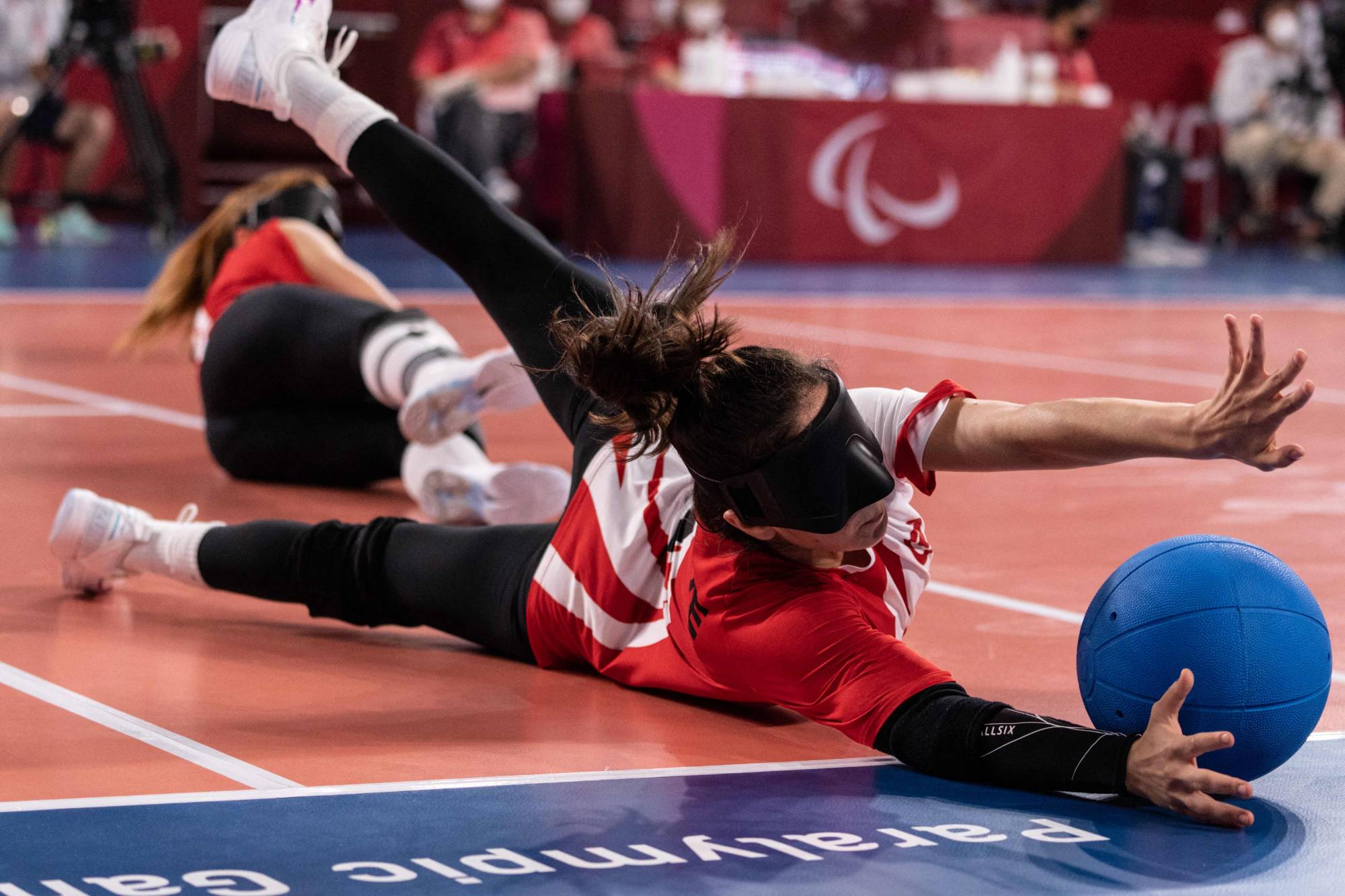
Despite her own youth, she sent a message to young girls hoping to follow in her footsteps.
"They should never (quit) when it's hard," she said. "They have to believe that they can be here."
Hagiwara could be among the players Japan promotes the most as it tries to grow the domestic fanbase. The 20-year-old finished her first Paralympics with 25 goals — second only to Altunoluk. Hagiwara is the youngest player on the Tokyo 2020 team and, with her knack for scoring, may be Japan’s star of the future.
"I still have issues defensively, so I want to do my best toward the next goal," she said.
As Hagiwara looks ahead to Paris, where she said the goal will be to win gold, she expects her role within the team to change as she gains experience.
"I'm confident on offense that I have a ball that can work on the world stage, and even when I'm nervous, I want to enjoy the games," she said. "I think we could also have young players at the Paris Paralympics, and I hope I can help them the way the senior players helped me here."



